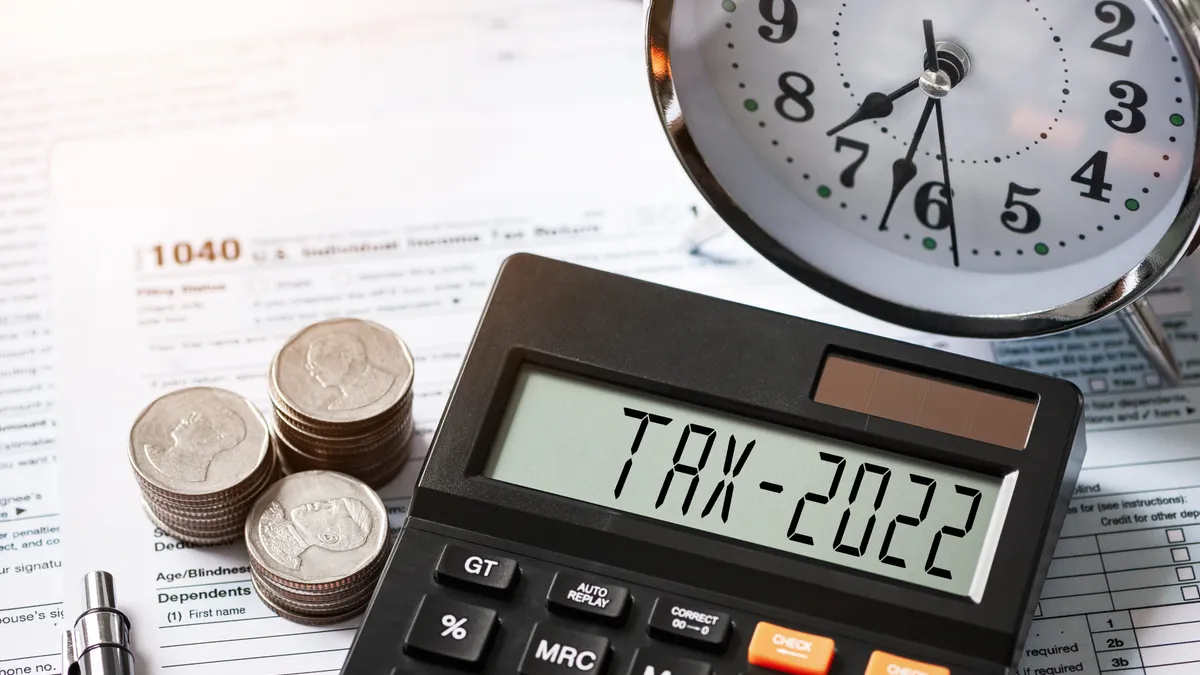Greg Engel, vice chair of tax at KPMG, oversees a team of more than 10,000 tax professionals and partners across a wide range of tax disciplines, including federal, international, state, local and specialty practices. Views are the author's own.
The tax profession is on the cusp of a major transformation. Yet, a majority of C-suite executives seem to be missing opportunities to drive real value by not leveraging tax data or harnessing technology to its full potential.
This is especially evident on the heels of significant tax and climate reform brought on by the new Inflation Reduction Act (IRA), and the ongoing negotiations at the Organization for Economic Cooperation and Development (OECD) to overhaul global tax policy. These evolving changes present the perfect opportunity for companies to use their data to model and scenario plan, forecast tax rates, evaluate whether they qualify for climate credits, and prepare for potential tax audits. The failure to utilize tax data in these ways will significantly limit an organization’s ability to add value and, worse, put the organization at risk of being left behind.
Data: the next tax frontier
This week KPMG released the findings from its annual report, “Tax Reimagined: Perspectives from the C-suite,” which surveyed 300 C-suite executives at companies with more than $1 billion in revenue. The survey explores the changing tax profession and uncovers the ingredients necessary to successfully compete in the 21st century, such as the ability to organize, analyze and synthesize data.
In our 2021 edition of the Tax Reimagined survey of C-suite executives, 73% of respondents admitted their organizations did not know how to use tax data in a forward-looking way. One year later, there hasn’t been consistent or sufficient progress. In 2022, while the majority of our respondents claimed to leverage tax data often to navigate critical business activities, we found that few leaders were actually doing so. For example, 52% of the respondents said they’re not using their data to scenario-plan around tax policy changes; 64% are not leveraging tax data to align with ESG strategy; and 64% are not leveraging tax data to identify tax credits. These are some examples of areas where many tax departments could lean into their tax data to bring greater value to their organizations and boost their bottom lines.
Who runs the data engine?
So why aren’t companies doing more to mine the diamonds found in tax data? A company’s data is both vast and complex, and they need tax talent with the right skills and tools in order to use that data in a meaningful way. Typically, corporate tax departments are very lean, and the return on investment (ROI) for putting additional dollars behind emerging tax technologies isn’t worth the return. This is why leaders should consider a managed services approach, working with companies who specialize in data management strategies, technology and tax.
Another solution to the problem is for leaders to identify the skills gaps that exist in-house and invest in upskilling their talent. Leaders should ask themselves whether they’re hiring and training individuals who can push the profession to modernize. Our survey found many leaders expressing difficulty in recruitment and retention, and 53% stating the recruitment of new talent with the right skill set as the primary challenge. Additionally, 70% of respondents said cloud, D&A, analytics and visualization tools are the most relevant for their tax talent to know and use. That said, we continue to see leaders preferring to hire tax experts who can learn technology rather than technologists who could learn tax.
The C-suite’s competitive edge
As tax departments and their organizations face increasing complexity and fast-evolving challenges, they must understand that tax data is both powerful and predictive. And, if harnessed correctly, that data can help leaders see around the corner and make a positive impact on the direction of the entire organization. I’m confident that the tax departments able to capitalize on the hidden gems found within their tax data will be the ones that win the race in the market.










